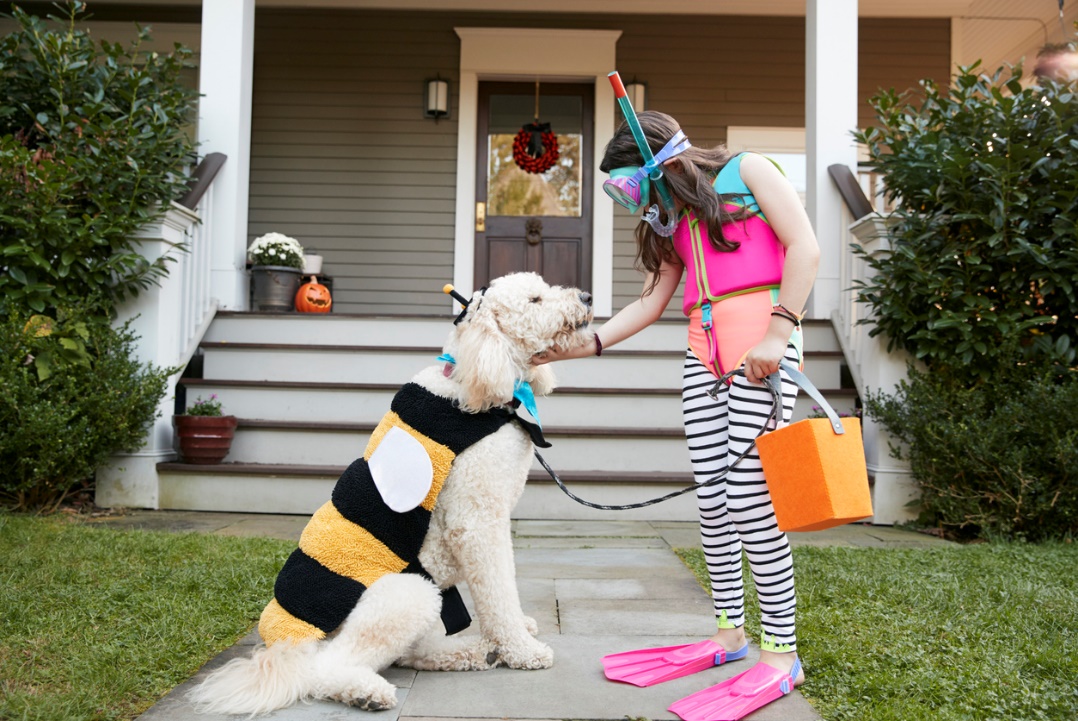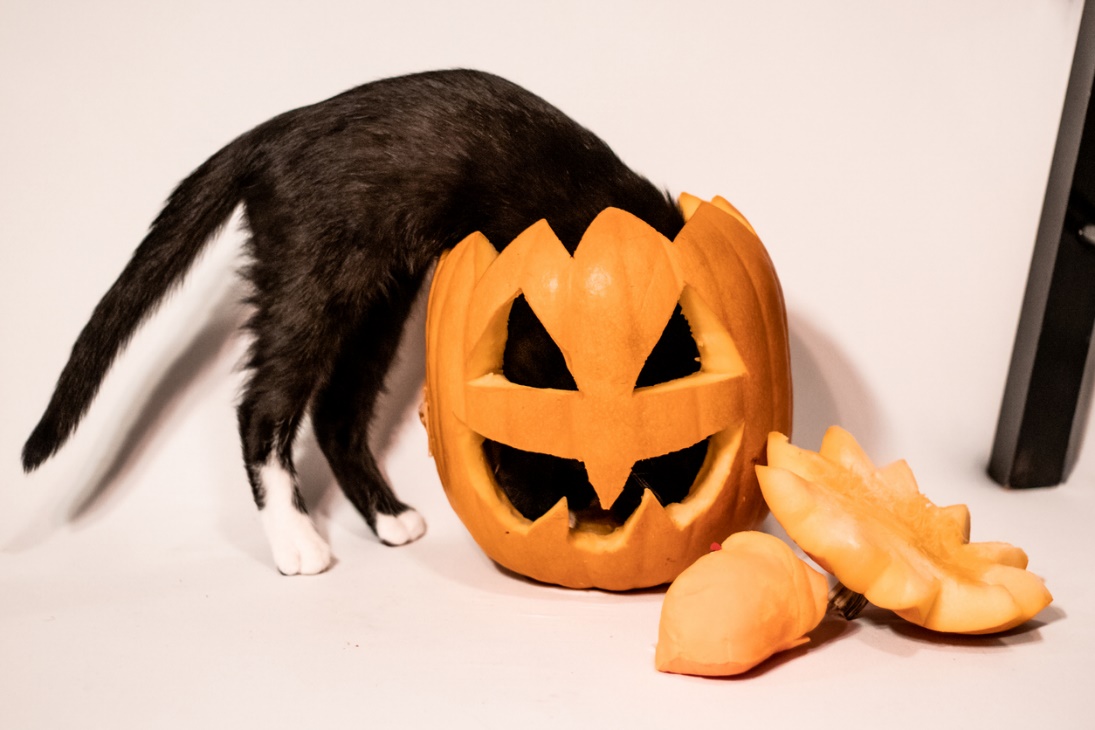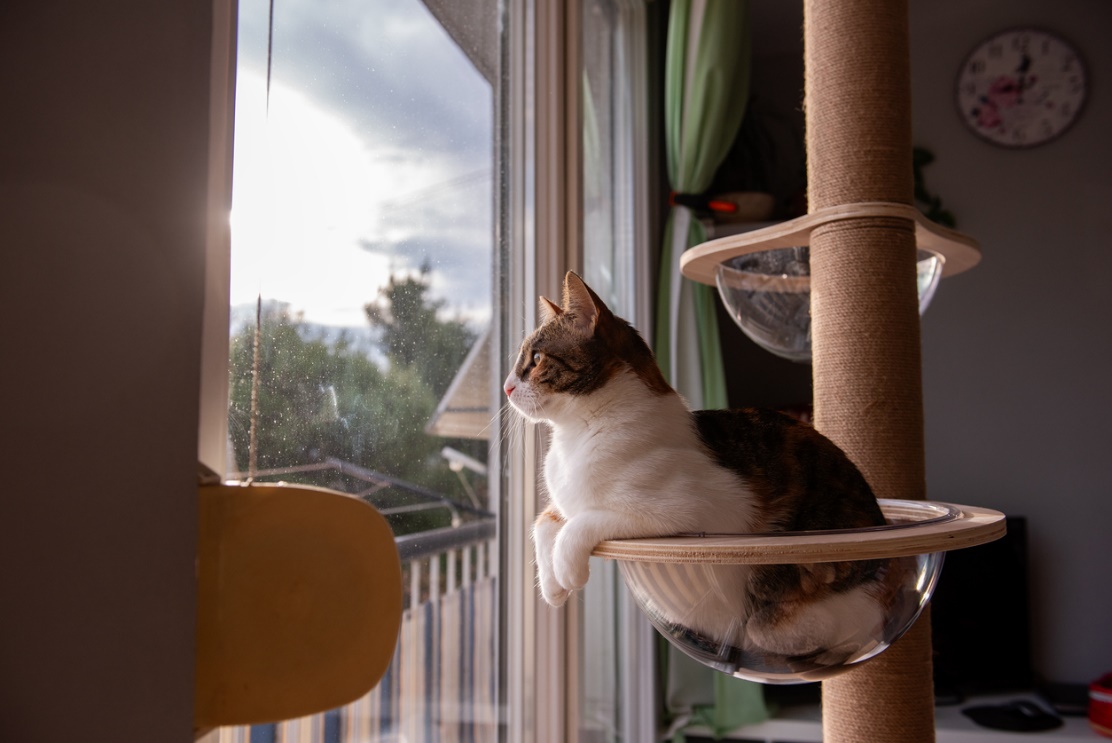Fall Pet Care Guide: Seasonal Safety Tips from College Hills Veterinary Hospital
Fall in College Station means cooler evenings, festive decorations, and plenty of seasonal activities for families. While you enjoy the change of season, it is important to remember that autumn also brings unique challenges for pets. From Halloween candy hazards to seasonal allergies and lingering parasites, your furry family members need extra attention to stay safe and healthy. At College Hills Veterinary Hospital, we are here to share the essential fall pet care tips every dog and cat owner should know.
Halloween Pet Safety Tips

Halloween is fun for people but can be stressful and dangerous for pets. Here are the top things to watch out for:
1. Candy Dangers: Chocolate and Xylitol
Two of the biggest risks for pets during Halloween are chocolate and xylitol, and even tiny amounts can be life-threatening.
- Chocolate contains substances called theobromine and caffeine, which pets cannot process the way people can. These chemicals overstimulate the nervous system and heart, leading to vomiting, diarrhea, rapid breathing, seizures, and in severe cases, death.
- Example: Just 1 ounce of dark chocolate could poison a 20-lb dog.
- Example: As little as ½ ounce of baking chocolate may be lethal to a 10-lb cat.
These are examples only — the exact toxic dose depends on your pet’s size, age, and health, as well as the type of chocolate.
- Xylitol is a common sugar substitute found in sugar-free gum, candy, baked goods, and even some peanut butters. In pets, xylitol causes a dangerous drop in blood sugar and, in higher amounts, can cause liver failure.
- Example: In dogs, just 1 gram (≈ ½ stick of sugar-free gum) can trigger a severe drop in blood sugar, and around 5 grams or more can damage the liver.
- Example: Cats are also sensitive to xylitol, though reports are less common. Doses around 100 mg/kg can cause blood sugar crashes and liver injury.
Again, these are examples — there is no safe dose of xylitol for pets. Treat even a small amount as an emergency.
The takeaway: Because toxic effects can vary widely by product and pet, there is no way to know what amount will cause illness in your own dog or cat. The only safe approach is to keep chocolate and xylitol-containing products away from pets entirely.
2. Clean Up Candy Messes Quickly
Candy wrappers and sticks can choke pets, so keep pets away during candy sorting and teach kids never to share candy with pets.
3. Pet Costume Safety
Choose costumes that are comfortable and never restrict breathing, vision, or movement. If your pet looks stressed or anxious, skip the costume altogether.
4. Prevent Escapes
With doors opening often for trick-or-treaters, it is easy for pets to slip outside. Double-check collars and ID tags. Make sure your pet’s microchip is registered with your current contact info. If you need to get your pet microchip, College Hills Veterinary Hospital provides microchipping and can scan/verify your pet’s chip number and registration at your visit.
5. Keep Cats Indoors
The excitement and noise of Halloween can overwhelm cats. Keeping them inside helps prevent unnecessary stress and reduces escape risks.
6. What to Do If Your Pet Eats Something Dangerous
If you think your pet has eaten chocolate, xylitol, or another toxin:
- Call a pet poison control hotline first — they are available 24/7:
- Pet Poison Helpline: (855) 764-7661
- If you can, have your pet’s weight and the product packaging ready when you call.
- Follow the specialist’s instructions — they will guide you and work directly with us at College Hills Veterinary Hospital or an emergency vet if urgent care is needed.
Do not wait for symptoms to appear — prompt action gives your pet the best chance of recovery.
Pumpkin for Pets: A Natural Aid for Digestion

Plain, cooked, or pure canned pumpkin (with no sugar, spices, or flavoring) can be a healthy addition to your pet’s diet in moderation.
- Dogs: 1–2 teaspoons per day for small to medium dogs, up to 2 tablespoons for large dogs.
- Cats: About ½ teaspoon mixed into food.
Pumpkin is high in fiber and can support healthy digestion and stool consistency. Since October is also National Pet Obesity Awareness Month, this is an opportune time to review your pet’s diet and body condition with us.
Fall Hazards to Avoid
Cooler weather also brings seasonal risks for cats and dogs:
- Mushrooms: Many wild mushrooms are toxic or deadly — never let pets sample them outdoors.
- Garden waste: Corn cobs, pumpkin rinds, and squash hulls can block intestines. Moldy leaves and compost piles may contain harmful toxins.
- Poisons: Rodent bait and slug pellets are extremely dangerous. Even “pet-safe” versions can make animals sick.
Allergies That Flare in Fall
Just like people, pets can suffer from seasonal allergies in autumn. Ragweed pollen, mold spores, and dust are common triggers. Signs include:
- Persistent scratching or paw licking
- Sneezing or watery eyes
- Red, irritated skin
- Hot spots or hair loss
If you notice these symptoms, schedule a visit. We can check for infections, rule out other causes, and recommend treatment to bring your pet relief.
Parasites Do Not Take the Season Off
In College Station, fleas, ticks, and mosquitoes stay active well into fall. These pests can transmit serious diseases — including heartworm and Lyme Disease — so it is important to keep your pet on year-round prevention. Regular coat checks and parasite control are essential for keeping your pet healthy.
For more details, explore our related blogs on Heartworm Prevention and Flea and Tick Protection:
Fall Fun and Enrichment

Fall is a wonderful season to create safe, enriching experiences for your pets:
- Brisk dog walks in cooler weather
- Supervised play in the yard or with leaf piles (check for mold first)
- Window perches that catch the sun for cats to enjoy the sights and sounds of autumn
October is also Adopt-A-Shelter Dog Month — the perfect time to open your heart and home to a rescue dog in need.
Schedule a Fall Wellness Exam
Autumn is an excellent time to schedule your pet’s wellness exam before the busy holiday season. At College Hills Veterinary Hospital, we provide:
- Weight and body condition checks
- Vaccines and parasite prevention updates
- Screenings for allergies, skin, and ear problems
- Nutrition and lifestyle guidance
Call College Hills Veterinary Hospital in College Station, Texas today to schedule your pet’s fall wellness visit and keep your furry family members healthy all season long.
College Hills Veterinary Hospital
209 Dominik Dr
College Station, TX 77840
